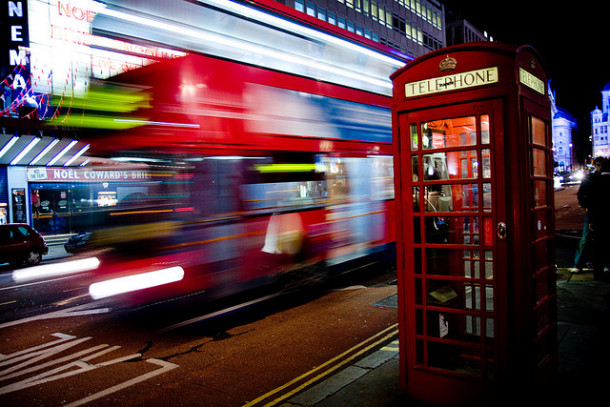London transport to take contactless credit cards from 2012

But mobile payments are hitting TfL's buffers...
Transport for London (TfL) has shelved the idea of letting commuters use NFC-enabled mobile phones to pay for travel on the capital's public transport network - but it's got its eye on using the technology in contactless debit and credit cards instead.
NFC is a short-range wireless technology that allows users to pay for goods or services by swiping their credit card or mobile phone over a reader. The payment is made without the need for contact between the device and the reader, making it a quicker and easier alternative to paying with cash.
TfL said it is in discussions with American Express, MasterCard and Visa with the aim of letting commuters use contactless debit and credit cards to pay for travel as early as 2012.
Such contactless cards would not replace the existing Oyster smartcard system but would stand alongside it as an alternative payment method for visitors to London who might not be familiar with TfL's contactless ticketing system or don't have an Oyster card of their own.
The number of contactless credit and debit cards has been ramping up in recent years, with some nine million now in circulation in the UK, according to TfL.
Barclays bank has been issuing replacement debit cards with contactless functionality as standard since March last year and estimates its entire debit card estate will be contactless by the end of next year. Retailers have also been getting on the contactless bandwagon, with food retailers including Co-op, Eat, Little Chef, Pret-A-Manger and Yo Sushi all having rolled out contactless payment terminals.

TfL aims to see contactless credit and debit cards used to pay for bus travel by early 2012
(Photo credit: E01 via Flickr under the following Creative Commons licence)
A spokeswoman for TfL said it plans to enable contactless card payments on London's buses in early 2012 but said these terminals will not initially be capable of processing mobile contactless payments.
"Not at this stage, this is just about...
...the contactless bank debit and credit cards," she told silicon.com. "Mobile phones are still something that we will keep an eye on as the technology is developing elsewhere but it's not something we are looking at putting on the London Transport network at the moment."
"Using mobiles is not as fast as using the swipe card or the smartcard technology, so it's also about the speed and the ease for our customers. Obviously we don't want to introduce something that might be a little bit more time-consuming because that defeats the point of trying to get people through a little more quickly," she said.
"The card option presented itself as faster and more convenient, more efficient than the mobile but we'll still keep an eye on the mobile option and see where that goes in the future in other areas."
Fares paid via contactless debit or credit card will be "more in line with Oyster", according to the spokeswoman. "Cash is the most expensive way to pay and we're trying to encourage people to move away from cash so it would be cheaper than cash."
TfL has been interested in contactless technology for some time, having taken part in a 2007 contactless mobile phone trial where testers used NFC-enabled mobile handsets to pay for travel and swipe through ticket gates.
TfL's renewed interest in new contactless ticketing options follows its purchase of the Oyster brand from TranSys, according to the spokeswoman - which she said gives it "more flexibility to look into emerging technologies".
According to the Mayor of London's transport adviser, Kulveer Ranger, contactless payment technology is becoming mature enough to offer a way to pay for travel, alongside Oyster. "This technology is now maturing and could enable people to pay for their travel using credit or debit cards - resulting in a simpler process for the customer, and reducing commission and processing costs for TfL," he said in a statement.
Ranger added: "Any improvements we introduce would clearly need to deliver value for money but we are excited about the potential benefits there could be for the London commuter."